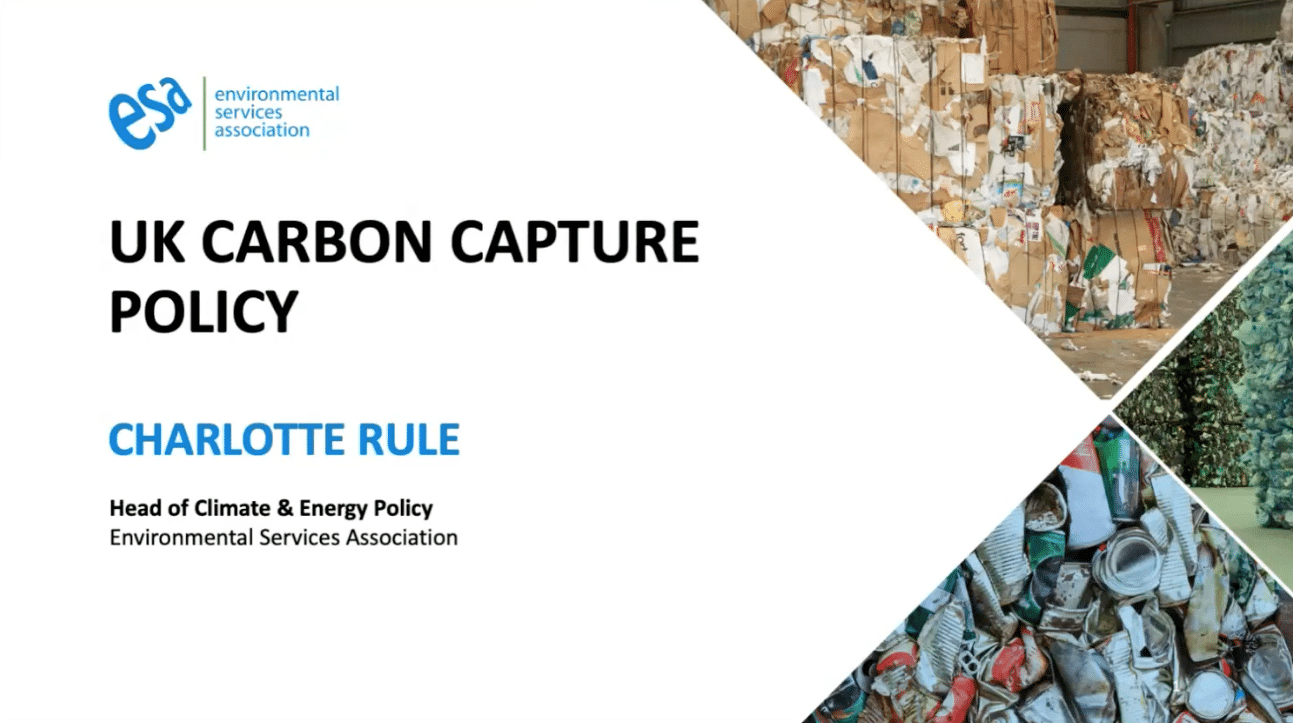On 29 May 2024, KAN had a meeting with ESA - Environmental services association, which brings together companies from the waste and recycling industry in the UK.
Målet med møtet var å få innsikt i ESAs arbeid og deres erfaring og syn på støtteordningene Storbritannia har til realisering av CCS-prosjekter. KAN var da spesielt interesserte i hvordan disse egnet seg for realisering av CCS for avfallsforbrenningsanlegg. Det er usikkert hvor godt myndighetene som utvikler støtteordningene for CCS har tilstrekkelig kjennskap til avfallshåndtering, og at de samfunnsmessige fordelene ved avfallsforbrenningsanlegg derfor blir undervurdert. De pågående forhandlingene om støtteordninger for avfallsforbrenningsanlegg vil med høy sannsynlighet gi et nyttig kunnskapsgrunnlag for utviklingen av støtteordninger i andre land.
ESA informed that the proposed support model for waste incineration plants will depend both on the pricing of fossil emissions and a marginal contract that ensures the operator a given price for the permanent storage of both biogenic and fossil emissions.
They could also inform that there has been a concern that large quantities of waste will be exported if energy from waste incineration is included in the quota system (before this happens in the EU). They have considered two solutions: limiting the number of licenses for waste exports and introducing an inverse carbon adjustment mechanism.
For more information about ESA, see: https://esauk.org
Briefly about CCS in the UK:
The UK has a clear CCS strategy that identifies specific areas for the development of CCS networks, the transport infrastructure for these regions and various sector-based support schemes for different facilities, including waste incineration plants. The UK's most important instruments for CCS are direct funding, CCfDs (Carbon Contracts for Difference) and carbon pricing, as well as a number of instruments directly aimed at the implementation of CCS and CDR projects.
GBP20 billion is earmarked for CCUS funding, including the CCS Infrastructure Fund which supports investment costs related to the establishment of transport and storage infrastructure and industrial carbon capture.
Other support schemes include:
• DAC and GGR (Greenhouse Gas Removal) Innovation Programme, which provides support for innovative CDR projects
• Industrial Energy Transformation Fund, which focuses on facilitating projects within energy efficiency and the use of low-carbon technologies
• Net Zero Innovation Portfolio, which will allocate up to GBP100 million to the research and development of CDR technologies.
In addition to direct funding support, the UK has established Industrial Carbon Capture Contracts which act as contracts for difference for industrial CCS projects that have plans to be operational from 2027.
The UK also has its own quota system, and is considering incorporating biogenic emissions into the quota system in the near future.
